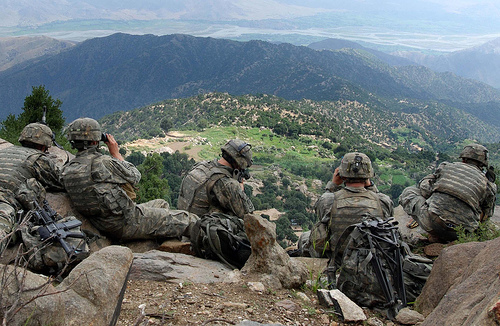
The Washington Post ran a feature yesterday that asked a number of foreign policy experts to offer their first impressions of President Obama’s speech at Camp Lejuene.
I found many of the responses interesting, but was particularly struck by Andrew Bacevich’s comments. Bacevich teaches International Relations at Boston University and is the author of The Limits of Power: The End of American Exceptionalism.
He wrote:
A promise to end the war in Iraq formed the cornerstone of Barack Obama’s run for the White House. Yet his announced “withdrawal” plan ends nothing. It serves chiefly to reorder the Pentagon’s operational priorities. Meanwhile, the “Long War” — conceived in the wake of Sept. 11, 2001, and now in its eighth year with no end in sight — continues.
For President Bush, Iraq was priority No. 1. He expected victory to yield a rich strategic and political payoff. He neither gained victory nor reaped any payoff. Meanwhile, Afghanistan and Pakistan, the Long War’s other fronts, languished as afterthoughts. Obama’s plan to reduce the U.S. military presence in Iraq to a residual force of 35,000 to 50,000 troops now transforms the Persian Gulf into a secondary theater. In effect, the president is orienting the Pentagon’s attention back to Central Asia, the front where the war began in 2001. Yet in doing so, he implicitly recommits the United States to what has become an open-ended military endeavor.
Lost in the shuffling of troops is any clear understanding of that endeavor’s strategic rationale. Iraq alone has cost the United States a trillion dollars or more. The putative success of the “surge” notwithstanding, we have achieved exceedingly modest and tenuous gains. To imagine that simply trying harder in Afghanistan and Pakistan will produce a happier outcome is surely a fantasy.
Bush hoped to transform the Middle East. Obama’s instincts point in a different direction. To preserve the American way of life, he appears intent on changing it, a project with vast economic, social and even cultural implications.
The Long War is incompatible with that project. Protracted war or domestic reform: We may be able to afford one. We cannot afford both. So Obama must choose. If, instead of choosing, he tries to finesse the Long War — and shifting the weight of U.S. military efforts from Iraq to Afghanistan amounts to little more than temporizing — his reform agenda is likely to be stillborn.
Bacevich’s comments serve as a useful reminder that the war in Afghanistan and the war in Iraq were both borne of a a strategic vision that considers radical Islamic terrorism to be America’s “defining ideological challenge” that will last for generations.
President Obama’s first move – shifting troops from Iraq to Afghanistan – is a tactical decision to emphasize one battle over another, rather than a strategic shift from “transforming the Middle East and Central Asia through military force as priority number one” to “anti-terrorism through law enforcement, limited military campaigns, and economic development as one priority among many.”
As President Obama comes to grips with the multitude of challenges America faces, I hope he will end the “long war” as it was conceived by the Bush administration and offer an alternative strategy to manage international terrorism that is proportional to the threat and leaves room for other priorities.
— Ben Katcher


11 comments on “Seeing the Forest for the Trees in Afghanistan”